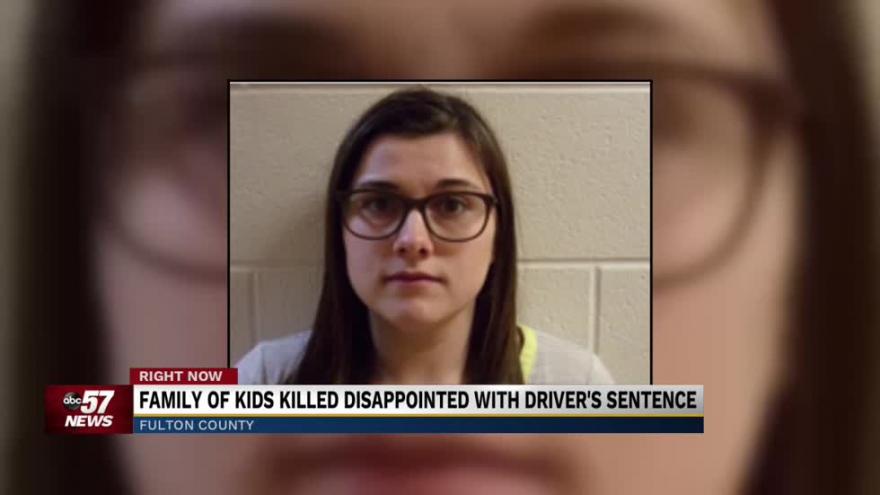Alyssa Shepherd appeals convictions in Fulton Co. bus stop tragedy
FULTON COUNTY, Ind.—Alyssa Shepherd, the driver convicted of hitting and killing three children and injuring a fourth as they attempted to board their school bus on S.R. 25 in October 2018, has filed an appeal of her convictions and the terms of her license suspension.
Shepherd, 25, was convicted by a jury in October 2019 of three counts of reckless homicide, one count of reckless driving causing bodily injury, and criminal recklessness.
In December 2019, Shepherd was sentenced to serve four years in prison, three years in home detention, and three years probation. Her license will be suspended for 10 years.
The bus was stopped in the northbound lanes with its stop arm extended when Shepherd, who was traveling southbound, failed to stop for the bus and struck the children crossing the street.
Xzavier Ingle, 6, Mason Ingle, 6, and Alivia Stahl, 9 died at the scene. A fourth student, Maverik Lowe, suffered severe injuries.
Shepherd's appeal involves four arguments:
- The state failed to show sufficient evidence her actions were reckless
- The court erred in not allowing the jury to be instructed in the difference between negligence and recklessness
- That her convictions on criminal recklessness and recklessly passing a school bus constituted double jeopardy
- State law does not allow for her license suspensions to run consecutively
On the first argument, Shepherd argues she believed the lights of the school bus were actually farm equipment or an oversized load and her conduct was negligent, but not reckless.
Shepherd argues for her actions to have been reckless, she would have acted, "'in plain, conscious, and unjustifiable disregard of the harm that might result' and that disregard involves a substantial deviation for acceptable behavior."
The argument is that Shepherd's actions were a result of an error in judgment, but not reckless.
On the second argument, Shepherd alleges the court erred by not giving the jury instructions on the distinction between negligence and recklessness. She argues her actions were negligent, not reckless.
During trial, her attorneys asked the trial court to give the jury the following instructions:
Proof that an accident arose out of the inadvertence, lack of attention, forgetfulness or thoughtfulness of the driver of a vehicle, or from an error of judgment on his part, will not support a charge of reckless homicide.
Shepherd argues simply allowing her counsel to argue what she did was negligent, not reckless, was inadequate to explain the concept.
In her third argument, Shepherd alleges her convictions of criminal recklessness and recklessly passing a school bus constitute double jeopardy because they were based on the same act with the same harm to the same victim. She asks the court to vacate the recklessly passing a school bus conviction.
Her final argument is Indiana state law states license suspensions based on one event are to run concurrently, but her sentence requires her license suspensions to run consecutively.
Shepherd was sentenced to a 3 year license suspension on the three counts of reckless homicide and one year of suspension for the criminal recklessness conviction, to run consecutively.
Indiana code states, “Multiple suspensions of driving privileges ordered by a court that are part of the same episode of criminal conduct shall be served concurrently.”
Because the reckless homicide and criminal recklessness offenses occurred simultaneously - in one crash, she argues the suspension are part of one episode of criminal conduct and should run concurrently.
If the Indiana Court of Appeals accepts the case, they will schedule arguments where both sides can present their case.


